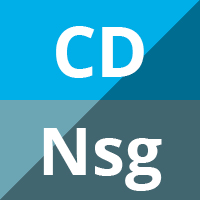
Naftidrofuryl for acute stroke
Abstract Background Stroke is the third most common cause of death and the most common cause of disability in the western world. The development of drugs to limit the effects of brain damage caused by stroke continues but no routine effective treatment has yet been identified. Naftidrofuryl has been reported to be beneficial in the […]

Conservative treatments for whiplash
Abstract Background Many treatments are available for whiplash patients but there is little scientific evidence for their accepted use. Patients with whiplash-associated disorders (WAD) can be classified by the severity of signs and symptoms from Grade 0 (no complaints or physical signs) to Grade 4 (fracture or dislocation). Objectives To assess the effectiveness of conservative […]

Amphetamines for improving recovery after stroke
Abstract Background Animal research shows that treatment with amphetamines improves recovery after focal cerebral ischaemia. If the effects are similar in humans, amphetamine treatment could have a major impact on recovery from stroke. Objectives To assess the effects of amphetamine treatment in patients with stroke. Search methods We searched the Cochrane Stroke Group Trials Register […]

Salicylate for the treatment of Kawasaki disease in children
Abstract Background Kawasaki disease is the most common cause of acquired heart disease in children in developed countries. The coronary arteries supplying the heart can be damaged in Kawasaki disease. The principal advantage of timely diagnosis is the potential to prevent this complication with early treatment. Salicylate (acetyl salicylate acid (ASA), aspirin) and intravenous immunoglobulin […]

Weight reduction for primary prevention of stroke in adults with overweight or obesity
Abstract Background Obesity is seen as a worldwide chronic disease with high prevalence that has been associated with increased morbidity from many conditions including stroke, which is the third leading cause of death in developed countries and a leading cause of severe long-term disability. The causal association between overweight or obesity and stroke is unclear […]

Angioplasty for intracranial artery stenosis
Abstract Background Intracranial artery stenosis causes up to 10% of all ischaemic strokes. The rate of recurrent vascular ischaemic events is very high. Angioplasty with or without stent placement is a feasible procedure to dilate the vessel affected. However, its safety and efficacy have not been systematically studied. Objectives To determine the efficacy and safety […]

Electrostimulation for promoting recovery of movement or functional ability after stroke
Abstract Background Electrostimulation might improve motor recovery after stroke by providing neuromuscular re-training. Objectives To find if electrostimulation improved functional motor ability, and the ability to undertake activities of daily living. Search methods We searched the Cochrane Stroke Group Trials Register (last searched August 2005), the Cochrane Central Register of Controlled Trials (CENTRAL) (The Cochrane […]

Anticoagulants versus non-steroidal anti-inflammatories or placebo for treatment of venous thromboembolism
Abstract Background Venous thromboembolism (VTE) is the term given to any thromboembolic event (blocking of a blood vessel by a blood clot) occurring in the venous system. The current treatment recommended for VTE is anticoagulation (reduction of the blood’s ability to clot). The aim of this review is to summarize results from randomized controlled trials […]

Interventions for apraxia of speech following stroke
Abstract Background Apraxia of speech is a communication disorder that can affect stroke patients. Several different intervention strategies are undertaken by speech and language therapists working with this patient group. Objectives To assess whether therapeutic interventions improve functional speech in stroke patients with apraxia of speech and which individual therapeutic interventions are effective. Search methods […]

Carotid endarterectomy for asymptomatic carotid stenosis
Abstract Background Carotid endarterectomy (CEA) is of proven benefit in recently-symptomatic patients with severe carotid stenosis. Its role in asymptomatic stenosis is still debated. The Asymptomatic Carotid Surgery Trial (ACST) more than doubled the number of patients randomised to CEA trials. This revised review incorporates the recently published ACST results. Objectives To determine the effects […]

